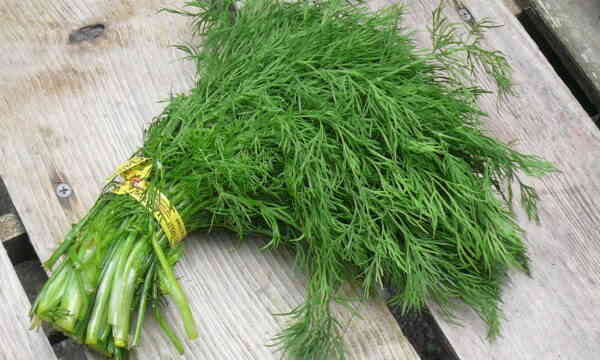Many people actively use dill in cooking a wide variety of dishes, this seasoning is considered truly universal. Dill is good fresh, especially when added to soups, salads, or stir-fries, but when dried, it retains much of its flavor. At the same time, it is widely distributed mainly in Europe, North America, and in other regions it is practically not used. This is partly due to the fact that it is not popular in the cuisines of some countries.
Interesting facts about dill
- All over the world, only one species of this plant is cultivated – the common garden dill.
- In ancient times, and in the Middle Ages too, dill was widely used as an ornamental plant in some countries.
- In people with low blood pressure, dill can cause weakness, blurred vision, and even fainting.
- Dill, like most other herbs, was first grown in India. There you can still find wild dill growing in natural conditions.
- In ancient Greece and in ancient Rome, a lush bouquet of flowering dill was a common gift for a lady (interesting facts about ancient Rome).
- Dry or simply not the freshest dill loses not only its appearance, but also its aroma, as well as some of the vitamins it contains.
- At the same time, in dried form, dill in terms of energy value is 2-3 higher than fresh.
- Dill is an essential component of spice mixtures used in Georgian, Armenian, Azerbaijani, Turkmen, Tajik and Uzbek cuisines.
- Dill is an ingredient in many traditional Greek medicinal tinctures.
- If dill is boiled in boiling water, it will lose its flavor, so it is usually added to already prepared soup.
- The ancient Egyptians used dill as a medicinal plant, as evidenced by the manuscripts discovered by archaeologists – dill decoction was used as a remedy for headaches (interesting facts about ancient Egypt).
- In ancient Rome, dill wreaths were often presented to the winners of various competitions.
- In the Middle Ages, many peoples believed that dill protects against witchcraft. Bunches of dill were hung around the house so that its smell would drive away evil spirits.
- During archaeological excavations of Roman ruins in the UK, fossilized remains of dill were discovered.
- A description of the effect of dill seeds and its leaves on various human organs was given in his work “The Canon of Medicine” by the world-famous Persian scientist Avicenna, who lived from 980 to 1037.
- This plant delights botanists with its thin and at the same time surprisingly strong structure – even a very strong wind cannot break dill stems.
- The smell of dill repels most insects.
- A special aroma of this plant gives the essential oil contained in its stem, leaves and seeds.
- The ancient Greek physician Hippocrates in his treatises considered the benefits of dill as a medicinal plant.
- The spread of dill in Europe began around the 10th century.
- Dill seeds remain viable for up to 10 years, if the storage conditions are observed.
- Dill extracts are used as raw materials for the production of perfumes and cosmetics, and are also included in creams, toothpastes and colognes.
- It has been scientifically proven that eating dill improves metabolic processes in the body.
- The aforementioned physician Avicenna claimed that dill decoction is a good remedy for hiccups.
